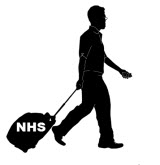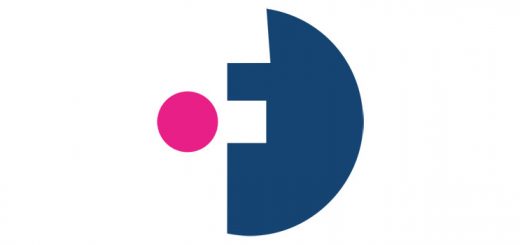Need a new hip on the NHS? – head to Calais
by David Alan Cross · 12th September 2015
Charlie Cooper for The Independent 11/09/2015) – As final details are ironed out in a deal between health authorities in Kent and France, not everyone is impressed
The English have a long-running love affair with Calais. Once it was Edward III and his knights, and more recently day trippers and booze cruisers.
But within the next few weeks, the ports and Eurostar terminals may be hosting a new breed of Channel hopper – the NHS medical tourist.

In what is thought to be a first for the health service, authorities in Kent this week confirmed they are finalising an agreement with two hospital groups in France – one in Calais, another with sites dotted around the north coast – to send NHS patients overseas for procedures such as hip and knee operations, as well as urology, gynaecology, and ear, nose and throat services.
The unusual plan has already attracted the derision of the local health unions. Unison called it a gimmick to distract from – and possibly take pressure off – problems at British hospitals, where waiting times targets have been missed and inspectors have criticised staff shortages and gaping financial deficits.
But the South Kent Coast Clinical Commissioning Group (CCG), which is pursuing the deal with the French hospitals, says that it is all about patient choice.
No patients from the area will be forced to go to France. But if they need one of the procedures offered by the French hospitals, their GPs will have to offer them the opportunity. And while their healthcare costs are covered by the NHS, the patient pays the travel expenses.
The deal has come about in the same way any non-NHS provider can bid to take on NHS patients. The only difference is, the providers in this case happen to be in France.
When your hospital is closer to London than it is to Paris, why should that be a problem? That’s the attitude of Martin Trelcat, general manager of the Centre Hospitalier de Calais, which could begin taking NHS patients later this year.
A resident of Dover, Deal or Shepway arriving at his hospital would surely be encouraged by first impressions. A bright, spacious building on the outskirts of town, with a big glass façade, the main hospital is only three years old and is much more inviting than much of the NHS’s ageing property stock.
It also has room and expertise to spare.
“We don’t have waiting lists in France,” Mr Trelcat says, airily. “We have the capacity for more patients.”
Partly this is because of new demand in France for day-case surgery – something Mr Trelcat says French hospitals were slow to adopt – leaving overnight beds unfilled.
“We wanted to promote day case surgery for French patients, so we have beds available for overnight surgery – so why not for British patients?
“Come to Calais, spend a few hours downtown, come to la Cité Europe [shopping mall] in Coquelles … there are English people everywhere.
“If we have British patients eligible for day case surgery we propose to do them as well – they can stay in the hotel at night, we can give you the telephone number of the hospital if there is something wrong, and we would send a medical team to pick up the patient.
“They can stay a few more days if they want to visit the town,” he adds.
Why now? Mr Trelcat says that the deal may have more to do with the French healthcare system, than it does with pressures in the NHS.
French hospitals – run by a mix of private, public and hybrid companies – are facing austerity cuts to the funding they receive from government social security payments. France spends around 11.7 per cent of its GDP on health – more than most countries, including the UK. But sluggish economic growth has meant the protected sector is now in line for cutbacks and reorganisation.
The result, Mr Trelcat says, is that French hospitals are seeking other sources of income. For those on the borders – including the Channel coast – one option is to take patients from other countries. “If we have between 300 to 400 patients for orthopaedic surgery – knees, hips, shoulders – within a three or four year period we could bring in €1m [£733,000],” he says.
That is not a huge dividend at a hospital with a budget of €154m, but every little helps.
There is a parallel with the way NHS hospitals have increased their income from paying patients in recent years, to top-up coffers running low on state funds. Some of the best-known London hospitals – such as the Royal Brompton and Moorfields Eye Hospital – trade on their global reputation, making millions from private medical tourists each year. Mr Trelcat said he expected Parisian hospitals – facing the same state restraint – to bring in more of this kind of patient as well.
Find out more about the Calais Hospital



